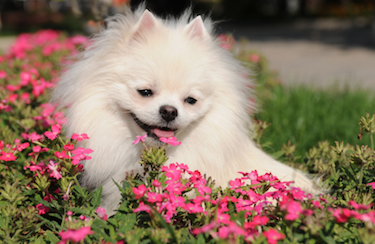Find out which dog breeds tend to be most prone to dragon breath.
There are good reasons why, “Hey, dog breath!” is a popular put-down among 4th graders (and immature adults). When dog breath really, really stinks, it can pervade the room you’re in. It may not be quite as bad as the dog-doo stink made by Truffles, a dog on a U.S. Airways flight last week who just had to go, but it’s bad enough.
Here’s a Q & A with a veterinarian to help you tell when your dog’s stinky mouth is a sign of potential or full-fledged health issues that deserve to be checked out further. And, if you’re looking to get a puppy or dog for your family, the information on which breeds tend to have the worst breath may be food for thought as you make your decision on which type of dog to choose.
Many thanks to Dr. Ana Nemec, DVM, PhD, DAVDC, a research associate in the Dentistry & Oral Surgery Service at the UC Davis School of Veterinary Medicine, for this interview.
Rover.com:
So which dog breeds tend to have the worst breath?
Dr. Nemec:
It has not been reported that specific dog breeds would be more prone to halitosis. However, specific dog breeds, for example, toy breeds, are known to have gum disease more often, and therefore more often bad breath.
Rover.com:
What about “bearded” dogs like Schnauzers? How does the fur around their snouts potentially contribute to bad breath?
Dr. Nemec:
Long hair around the mouth can more easily become dirty with food particles and saliva. This debris harbors bacteria that “feed on” this debris, resulting in an unpleasant smell. In addition, if the skin around the mouth is constantly wet, dermatitis (inflammation and infection of the skin) can develop, contributing to the smell.
Rover.com:
What are some symptoms that might indicate there’s a more serious health problem underlying your dog’s bad breath, like periodontal disease?
Dr. Nemec:
When bad breath is noticed, the animal should be examined by a veterinarian. Most often oral/dental disease will be found. If the veterinarian feels that oral or dental disease may not be the sole cause of the bad breath, he or she will recommend additional tests (for example, blood or urine tests) and procedures to rule out other possible causes of bad breath, which possibly include diseases.
Rover.com:
What are some health issues that bad breath might be a symptom of in younger pets? In older pets?
Dr. Nemec:
The source of bad breath is the bacteria in the biofilms, which cover all oral surfaces, but especially the tongue and gums. When periodontal disease is present, this can be the major source of bad breath. Almost all older animals have some stage of periodontal disease. Other oral and dental diseases, such as broken and infected teeth, severe oral inflammation, oral cancer, and foreign bodies can also cause severe bad breath. These diseases can affect an animal at any age.
Other potential sources of bad breath are the nose, throat and tonsils, lungs, esophagus, and stomach. Some systemic diseases (for example, liver disease, kidney disease, and diabetes mellitus) can also cause bad breath. Most of these diseases also tend to develop more often with increasing age, but an animal can have a serious medical issue at any age.
Rover.com:
What’s the best way to prevent gum disease or bad breath in dogs?
Dr. Nemec:
Daily tooth brushing is the gold standard to remove bacteria from the dental and–if an animal allows–other oral surfaces. Together with regular professional periodontal treatments, this will help prevent development of periodontal disease and bad breath. If an animal with healthy teeth, mouth, and gums still suffers from bad breath, then other diseases will need to be ruled out by a veterinarian.
Rover.com:
If a person is really, really offended by bad dog breath, what dog breed might be best for them to choose (which ones are generally least prone to halitosis)?
Dr. Nemec:
Bad breath is most commonly associated with periodontal disease, and periodontal disease is most common in small breeds–[so] small breeds could be the most problematic regarding bad breath. However, periodontal disease can be effectively prevented and treated, so this should not be the reason why not to choose a small-breed dog! The question is how much an owner is willing to care for his/her pet’s oral health on a daily basis, regardless of the breed.
A QUIZ FOR ROVER DOG OWNERS:
How often do you brush your dog’s teeth?
A) Twice a day or more
B) Once a day
C) A few times a week
D) Once a week or so
E) I can’t recall the last time—I leave this job to my vet
Post your answers below!
Also check out our recent post on carpet-cleaner safety. The brands that appear the safest–and market themselves as such–often flunk the test from the Environmental Working Group.





